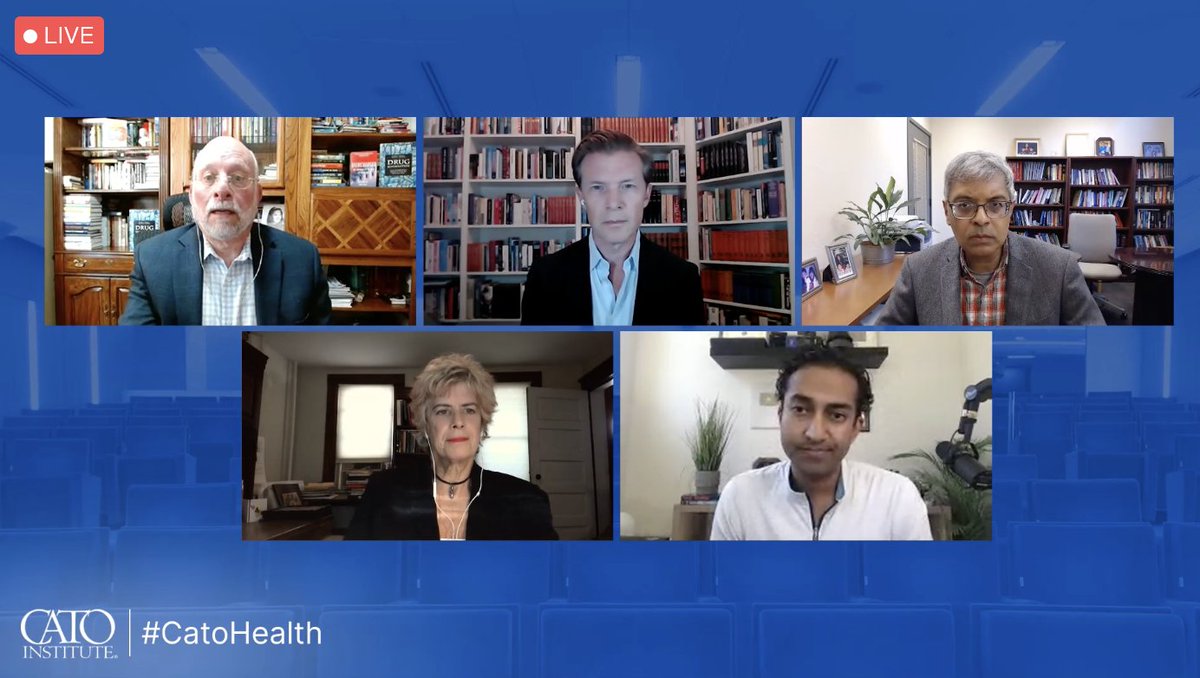
LIVE NOW: Join @EmmaMAshford, @ZackCooper, @EricGomezAsia and author @Ali_Wyne for a discussion of “America’s Great‐Power Opportunity.”
WATCH: bit.ly/3cWPuJc
Join the conversation & ask questions using #CatoFP
WATCH: bit.ly/3cWPuJc
Join the conversation & ask questions using #CatoFP

Great-power competition reflects the combination of strategic anxiety with China and Russia on the one hand, and a certain bureaucratic comfort on the other hand, says @Ali_Wyne.
WATCH: cato.org/events/america…
Join the conversation using #CatoFP
WATCH: cato.org/events/america…
Join the conversation using #CatoFP

Even though the U.S. is the world’s preeminent power with more freedom for foreign policy maneuver, it needs strategic discipline, highlights @Ali_Wyne, and to understand that the essence of strategy is trade-off.
TUNE IN: cato.org/events/america… #CatoFP
TUNE IN: cato.org/events/america… #CatoFP

“This book provides an overview of what is the dilemma for U.S. policymakers and how they might think about finding a solution that mustn't be reactive.” —@EmmaMAshford.
WATCH: cato.org/events/america…
Join the conversation using #CatoFP
WATCH: cato.org/events/america…
Join the conversation using #CatoFP

Competition about power, whether it is military or economic, isn’t really necessary… real competition comes with order building, highlights @ZackCooper.
WATCH: cato.org/events/america…
You can submit questions using #CatoFP
WATCH: cato.org/events/america…
You can submit questions using #CatoFP

“How do you turn strong principled stances into policy realities?” asks @ZackCooper
WATCH: cato.org/events/america…
You can submit questions using #CatoFP
WATCH: cato.org/events/america…
You can submit questions using #CatoFP

“America’s Great‐Power Opportunity” is a conversion starter—it leaves many questions unanswered to invite people from different IR schools and different ideologies to join the conversation, says author @Ali_Wyne.
TUNE IN: cato.org/events/america… #CatoFP
TUNE IN: cato.org/events/america… #CatoFP

“If the U.S. is not able to restore some sense of national purpose, a lot of the questions of grand strategy and external competition become moot. You can’t compete with Russia or China if your internal cohesion is broken.” —@Ali_Wyne.
WATCH: cato.org/events/america… #CatoFP
WATCH: cato.org/events/america… #CatoFP

The public and elites are often not aligned on foreign policy… but we need to pay attention to polls if they start to show trends that the public is increasingly skeptical of military intervention overseas, says @EmmaMAshford.
WATCH: cato.org/events/america… #CatoFP
WATCH: cato.org/events/america… #CatoFP

• • •
Missing some Tweet in this thread? You can try to
force a refresh






